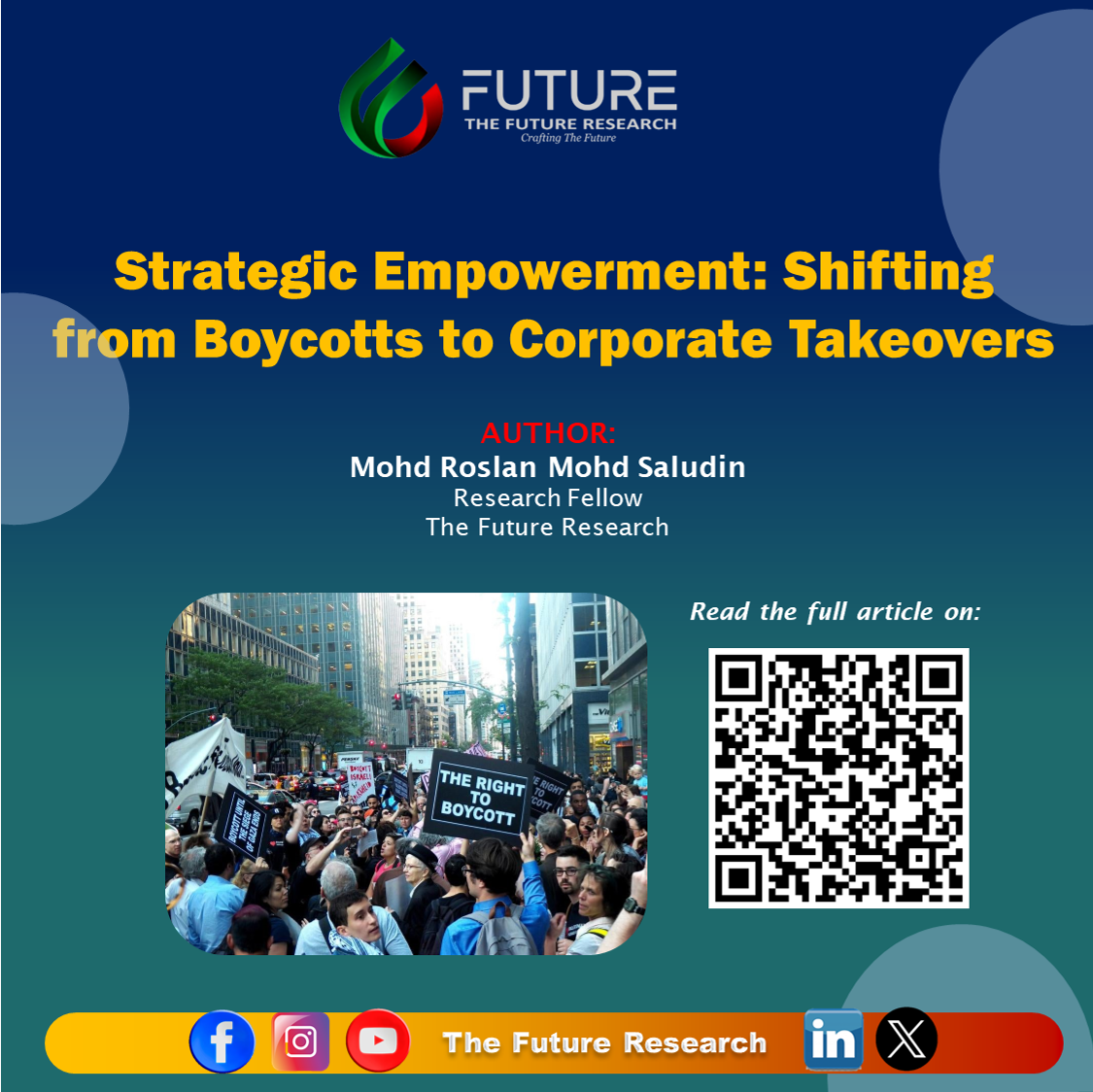The resurgence of the boycott issue has once again ignited passionate debates. Having conducted numerous motivational talks nationwide, I consistently advocate for alternatives to boycotts, deeming them temporary, reactive, and emotionally driven. While they may yield short-term results, they lack sustainability and effectiveness in the long run.
An alternative approach I propose is to strategically take over companies allegedly supporting Israel, starting with those based in Malaysia. Drawing inspiration from historical successes, such as Malaysia’s takeover of Sime Darby and Guthrie at the London Stock Exchange in the 1980s, we can see the transformative power of corporate ownership.
Sime Darby and Guthrie serve as prime examples of how strategic corporate takeovers can lead to significant economic and social benefits for Malaysia. These acquisitions not only expanded Malaysia’s global footprint but also brought substantial profits and opportunities for growth. By applying similar strategies to companies allegedly supporting Israel, we can harness the potential of corporate ownership to advance our national interests and support causes aligned with our values.
By acquiring major shares in corporations like McDonald’s, Nestle, and Coca-Cola, we can transform them into Malaysian-owned entities. This shift in ownership would not only allow us to redirect profits towards zakat and waqf funds but also empower our community and support the Palestinian cause.
Why pursue this approach? The profits generated far outweigh the royalties paid to American brand owners, potentially exceeding 15-20%. By centralizing ownership in Malaysia, we gain greater control over profit distribution and can significantly impact our desired beneficiaries, including the Palestinian people.
In the initial stages of takeover, a portion of profits could be allocated to Palestine funds, surpassing the 5% paid to America as royalties. As we expand our ownership to companies worldwide, we could even become recipients of royalties, further strengthening our financial position.
The question arises: which approach is more effective and sustainable in achieving our long-term goals? For those concerned about capital limitations, I suggest pooling funds through cash waqf or other means to finance takeover initiatives gradually.
Ultimately, the choice lies between boycotts and takeovers. Do we continue with reactive measures, or do we seize control of the narrative and shape our own destiny? It’s time to ask ourselves: do we have the courage to act? With strategic empowerment through corporate takeovers, we can chart a course towards lasting change and greater prosperity for all.
Mohd Roslan Mohd Saludin
Research Fellow
The Future Research

